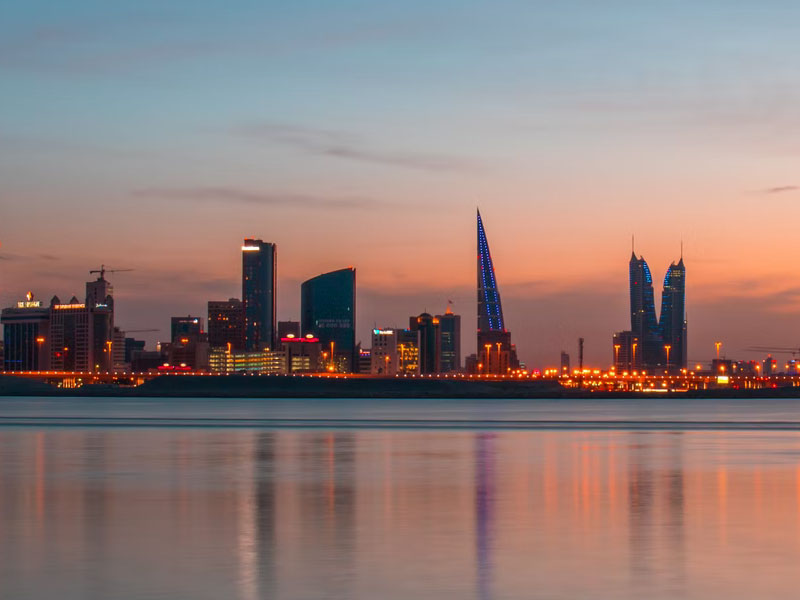Manama A Distinguished Capital Of Culture 2012
Issue 16

Manama, the necklace of pearls around the neck of the Arab culture, has been named Cultural Capital of the Arab World 2012. Manama has been a genuine cultural city since Bahrain was the capital of the popular arts in the Gulf and Arabian Peninsula. Bahrain’s cultural position has been augmented by the impetus of national efforts to serve culture and arts that began in the early twenties and then continued to play a vital cultural role in mid-seventies of the last century till our days.
Our testimony for Bahrain, as citizens of the country, maybe criticized, but who would disagree with the fact that Manama, for decades, has been living an active cultural movement attracting artists, intellectuals and the most educated people?! Manama has been teemed with creative Bahrainis participating in versatile culture reflected in so many activities, so one becomes confused and unable to decide where to go to quench his thirst for knowledge and his eagerness for thrill.
The local communities, the official and the semi-official cultural entities, all contribute to the success of the cultural movement in Bahrain; the organizations of civil society also have various types of other activities.
Manama has always been an active cultural capital, since the early seventies; the number of years does not limit the cultural standing of Manama. All recent acts of the incidental sabotage failed to spoil its bright image.
Being an officially designated capital of culture, it is necessary that Manama be highly distinguished, beyond all the cultural activities, efforts and events the city has every year. It has to be culturally unique and celebrate culture in a different way than any other Arab capitals of culture. Conferences, seminars, cultural evenings, poetry and singing soirees have become redundant and meaningless, without real excitement or lasting benefit. If we consider the achievements of the Arab capitals of culture since the beginning of the idea (the capital of culture), we notice that there has been a hype going around regarding the cultural activities and events.
Not denying the role of the Arab capitals in bringing together the educated and providing the opportunities of sharing and exchanging knowledge and culture, I would say that all designated Arab capitals have not achieved more than inviting and hosting poets, artists, intellectuals, and writers who present what they already presented on every occasion. Receiving that number of educated guests is not an ultimate goal by itself; however, the strategic target is how to make use of these guests. Traditionally, the politicians' main aim is to force their capitals on the map of culture leaving the concerned cultural bodies entangled in challenges and difficulties.
Has any Arab capital of culture thought of developing a national strategy for culture? Has the idea of developing a comprehensive plan of the Arab culture been put forward in any country to take advantage of what is accomplished by The Arab Organization for Education, Science and Culture? Have we examined any aspect of our cultural crises? Why are we at the bottom of the list of developed nations? Have we considered the causes of the low quality songs in the Arab world? Has the reason behind the demolishing role of theatre ever studied? Have workshops been conducted to discuss the impact of social communication tools on the youth culture? Has a study been conducted to identify the reasons that Arab countries are still reluctant to collect and document folklore materials in a scientific manner? Why is the insistence on keeping popular culture in a minor position? Has one of the cultural capitals ever worked on the phenomenon of ceremonial and superficial cultural activities and events held throughout the Arab world? Why importing readymade (tinned) hotel-style activities? How much is spent on organizing conferences and seminars without taking their recommendations into account? And why are countries wasting a lot of effort and money on major ceremonial projects in the name of culture, at a time when national culture not receiving enough financial support for genuine cultural activities?
There are many more questions that need to be answered, and there are many areas of research that need to be fulfilled by an outstanding capital of Arab culture; is Manama the expected one? Will it regain its role as the capital of folk arts in the region? Or is it only another capital of Arab Culture? We have to wait until the end of next year to find out.
This issue of Folk Culture corresponds with Bahrain’s celebrations on the National Day, while recovering from the pain and wounds of discord and security crisis. Bahrain is working - with its willful people- to reinforce national unity, and steadily go through the path of democracy proceeding with reform agenda, and supporting the cultural initiatives, such as the Folk Culture that aims at filling the gap in folklore education in the Gulf and the Arab World and integrating with the cultures of the world.
The magazine now is in its fifth year; continuing its pace, maintaining its principles and its specialized scientific approach, with the participation and support of highly experienced scholars, new writers and new views, documenting heritage materials that were unexplored, in addition to emphasizing the quality, constant issuance and the access to an expanded readership with the cooperation of the International Organization of Folk Art.
Folk Culture starts its fifth year so confident, the way Bahrain steps to pass crises, get more flourished and become more distinguished from one national day to another, conveying, to the world, the message of Bahrain’s cultural legacy.
Folk Culture


































































